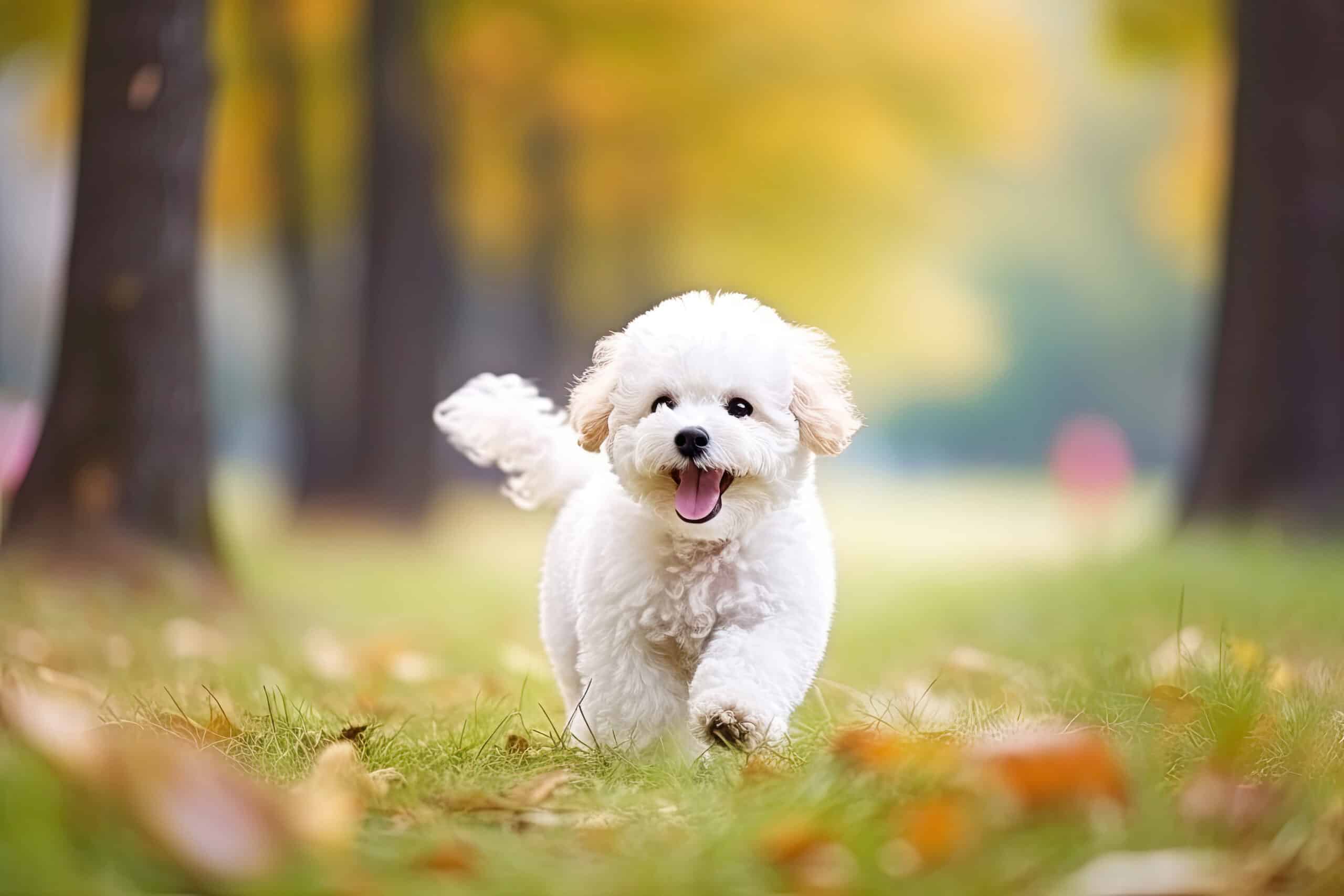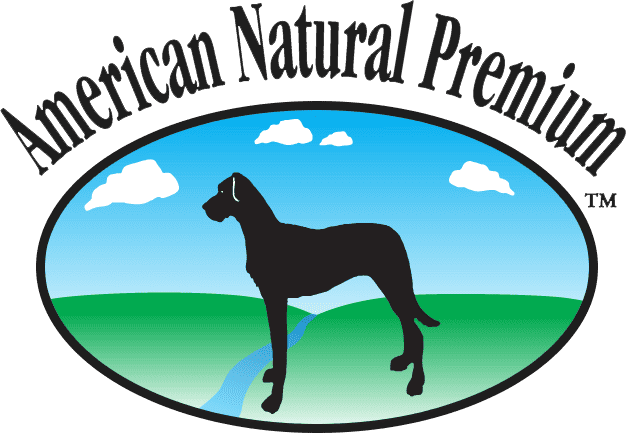Best Dog Food for Bichon Frise: A Comprehensive Nutritional Guide

With its cheerful disposition and plush, cotton-ball appearance, the Bichon Frise makes for an adorable, lively companion. This small breed has a friendly nature and playful temperament and requires a diet that aligns with its unique dietary needs. Balanced nutrition is crucial to ensure a dog’s overall health, and American Natural Premium, the best dog food for Bichon Frise dogs, offers a wide range of options for new and seasoned pet parents to choose from.
An Overview of Bichon Frise Dogs
The Bichon Frise, small in stature but robust and resilient, is one of the top “personality dogs” in the world. These captivating canines have always used their charm, good looks, and intelligence to navigate life. The breed is sociable and gets along well with other dogs and children, and their alertness and inquisitiveness make them excellent little guardians.
Dietary Needs of Bichon Frise Puppies
Bichon Frise puppies should consume a high-quality puppy-specific diet designed following the AAFCO Guidelines until they reach the age of one year.
- Protein Requirements: Bichon Frise puppies in their growth phase require a diet that comprises 22% protein.
- Feeding Schedule and Portions: Feed your two-month-old Bichon Frise puppy a high-quality puppy-specific kibble, measuring ¼ cup per serving, four times throughout the day. When your puppy reaches approximately 10 weeks, transition to a feeding schedule of three meals daily with the same amount of food. Once your Bichon Frise reaches the six-month milestone, you can adjust their meal schedule to twice daily, serving a half cup of food during the morning meal and the same amount for their dinner.
- Nutritional Supplements for Growth: Bichon Frise puppies might gain additional advantages from dietary supplements for joint health, omega-3 fatty acids to enhance the condition of their coat, and probiotics to aid in maintaining a healthy digestive system.
Dietary Mistakes To Avoid
The nutrition your Bichon Frise puppy receives significantly influences their overall health and well-being. Here are some dietary mistakes to steer clear of:
- Feeding Raw Food: Feeding Bichon Frise puppies a raw food diet isn’t advisable due to the potential danger of bacterial contamination.
- Overfeeding or Underfeeding: Overfeeding results in obesity and other health problems. Underfeeding causes malnutrition and may stunt your Bichon Frise’s growth and development.
- Ignoring Hydration: Besides maintaining a balanced diet, ensuring your Bichon Frise can access fresh, clean water throughout the day is equally crucial.
Transitioning to an Adult Bichon Frise Diet
While Bichon Frise dogs don’t have distinct dietary requirements, providing them with food that corresponds with their age and guarantees all their daily nutritional and energy needs is necessary.
Choosing the Best Dog Food for Bichon Frise Dogs
The best dog food for Bichon Frise dogs should be nutritionally balanced, easily digestible, and suitable for their small breed size. Here are some factors to consider when choosing the ideal food for your Bichon Frise:
- Protein Requirements: Foods suited for adult Bichon Frise dogs should comprise a minimum of 18% protein content.
- Feeding Schedule and Portions: Bichon Frise dogs typically require between 0.50 and 1.5 cups of dry dog food daily distributed across two meals.
Top-tier small-breed adult food brands like American Natural Premium offer scientifically crafted diets, integrating balanced proportions of protein, fat, and carbohydrates and essential vitamins, minerals, and antioxidants to uphold their overall health and vitality.
Monitoring Weight and Adjusting Portions
Ensuring that you can easily feel your dog’s ribcage is a good measure of whether they are at a healthy weight. If you need to exert pressure to feel the bones, it might indicate that your Bichon Frise is overweight. A reduction in food intake or a specialized weight-control diet could be necessary.
Alternatively, if the ribs appear too prominent, it might signal that your Bichon Frise is underweight. In this case, increasing their portion sizes and seeking veterinary advice could be necessary to rule out potential medical conditions.
Generally, regular exercise is vital for Bichon Frise dogs to maintain a healthy weight.
Special Considerations for Non-Sporting, Show Dogs, and Senior Bichon Frise Dogs
Bichon Frise dogs are non-sporting, making them excellent watchdogs and house dogs. However, many also join dog shows and competitions, requiring extra care and attention to maintain their unique coat and physical attributes.
Bichon Frise dogs typically fall within a weight range of 10 to 18 pounds. Inactive and senior dogs require a caloric intake of between 296 and 495 calories daily. Conversely, Bichon Frise dogs that are more active or participate in dog shows need a higher caloric intake, ranging from 404 to 663 calories per day.
Special Considerations for Bichon Frise Dogs With Health Conditions
Bichon Frise dogs are renowned for their impressively long lifespan, often exceeding 14 years. However, these dogs are not without their health issues. The breed is statistically more likely to experience diabetes mellitus, urolithiasis, dental diseases, and joint problems.
As the best dog food for Bichon Frise dogs, American Natural Premium uses only real natural ingredients that help dogs maintain a healthy weight and reduce the risk of developing health conditions. This premium dog food is also completely free from grains, legumes, and chicken, making it an excellent choice for Bichon Frise dogs with allergies or sensitivities.
Lifespan of Bichon Frise
The Bichon Frise, a small and cheerful breed known for its fluffy white coat and affectionate nature, typically enjoys a long and healthy life. The lifespan of Bichon Frise ranges from 12 to 15 years, with many living even longer with appropriate care. This impressive longevity can be attributed to the breed’s overall good health and robust constitution. Owners can help their Bichon Frise live a long and happy life by providing a balanced diet, regular exercise, and routine veterinary check-ups to catch any health concerns early.
Despite their generally good health, Bichon Frises can be prone to certain genetic conditions such as hip dysplasia, patellar luxation, and various eye disorders like cataracts and progressive retinal atrophy. Being vigilant about these potential issues and seeking timely veterinary care can help manage and mitigate health risks. Regular grooming and dental care are also important to maintain their overall well-being. Ensuring that the Bichon Frise receives ample physical activity and mental stimulation is crucial, as it helps prevent obesity and keeps them engaged and happy. With the right care and attention, Bichon Frises can thrive and bring joy to their families for many years.
Homemade Vs. Commercial Dog Food
Homemade food offers the benefit of knowing what ingredients are in your pet’s diet. You can customize meals for your dog’s dietary requirements or preferences. However, homemade dog food requires careful balancing, which can be complex and time-consuming.
On the other hand, commercial dog foods are formulated to provide complete and balanced nutrition in one convenient package. High-quality brands like American Natural Premium use natural ingredients and avoid fillers, offering a diet that supports your dog’s overall health.
With American Natural Premium, you can be confident that your Bichon Frise gets all the essential nutrients it needs to thrive and that its food is free from harmful ingredients.
The Takeaways
When choosing the best dog food for Bichon Frise dogs, American Natural Premium ticks all the boxes. The brand offers premium quality, natural ingredients, and a formula that supports your dog’s overall health. Contact us today and give your Bichon Frise the nutritious and delicious food it deserves!

